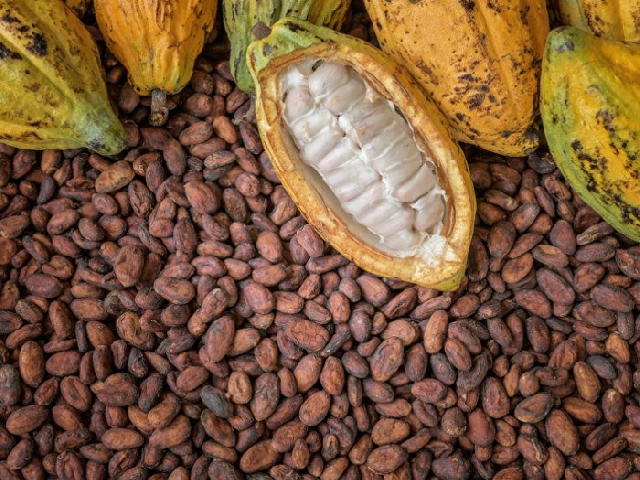News Africa
Year in Review: 9 companies that exited Nigeria in 2023

The challenges stemmed from various factors, beginning with the dynamics of an election year. As is typical during general elections, investors tend to approach the period with caution, uncertain about the outcomes and policy directions of the incoming administration, leading to a reluctance to make long-term investment decisions.
To compound matters, the business landscape faced an early hurdle with an artificial cash scarcity at the start of the year.
This was exacerbated by a poorly executed currency note redesign, which, in turn, constrained consumer spending throughout the first quarter.
As the economy rebounded in the second quarter, then came the twin reforms of fuel subsidy removal and the unification of the foreign exchange market which pushed inflation on an upward spiral and the naira losing over 50% of its value.
This coupled with other macroeconomic malaise plaguing the nation in the past years resulted in a significant number of businesses exiting from the Nigeria scene in 2023.
In this post, we’ll reel out the number of companies that left Nigeria in 2023 and the reasons for their exit and those that exited the Nigerian Stock Exchange despite its bullish trend this year.
1) Lazarpay– In April, Lazerpay, a web3 and crypto payment company co-founded by 21-year-old Emmanuel Njoku announced its shutting down operations after failing to raise funds to keep the company afloat. The company operated for only two years before calling it quits.
2) GlaxoSmithKline Consumer Nigeria– In August, GSK UK Group announced its intention to cease commercialisation of its prescription medicines and vaccines in Nigeria through the GSK local operating companies and transition to a third-party direct distribution mode. The company had earlier complained that challenges accessing forex were disrupting its operations in Nigeria.
In surrendering to defeat, the company had to pivot to a third-party distribution model for its pharmaceutical products.
The company’s exit came as a shock to many who have grown accustomed to its products and further highlighted the extent of the nation’s macroeconomic woes on the business community.
3) 54Gene– 54Gene shut down in September this year bringing an end to its 4-year existence in which it raised a whopping $45 million in three funding rounds.
The company’s death in September culminated in a tumultuous year in 2022 where it had three CEOs, a series of complaints from staff and other legal issues.
4) MABISCO Biscuit- In October, Mayor Biscuits Company Limited popularly called MABISCO announced it is shutting down its multimillion-dollar plant in Agbara Industrial Estate, Ogun state.
According to a statement from the company’s management, they intend to sell the company and focus on other business areas. The company started operations in 2016 and it was reported to have accumulated around 5% share of the market in its 7-year history.
5) Sanofi-Aventis Nigeria Ltd– In November, the Nigerian arm of the multinational pharmaceutical company Sanofi Aventis in a similar fashion to GSK and P&G announced its ceasing operations in Nigeria and pivoting into a third-party distribution business model in a letter sent to its partners.
Although the company announced a third-party distributor will handle its products in Nigeria, it declined to name the distributor.
6) Equinor– Divestment from international oil majors in Nigeria’s petroleum industry has become common in recent times as Equinor Nigeria Energy Company (ENEC) announced in November the sale of its 85% stake in oil and gas lease OML 128, and a 20.21% stake in the Agbami field, operated by Chevron to Nigerian owned Chappal Energies.
While the cost of the transaction was not disclosed, a statement from the company noted that its business in Nigeria has been profitable and the decision to sell syncs with its “strategy to focus on international oil and gas portfolio and core business areas”
The sale of its assets brought an end to Equinox’s over three decades of presence in Nigeria dating back to 1992.
7) Bolt Food– Bolt Foods joined the train of companies exiting the Nigerian marketplace in November when it announced its end of operations in Nigeria. The company cited the need to optimize resource utilization and streamline overall efficiency as responsible for its latest strategic decision.
8) Procter & Gamble (P&G)- In early December, P&G announced the dissolution of ground operations in Nigeria and reverting to an import-only business model for its Nigerian market. The company noted that Nigeria’s macroeconomic problems and forex challenges in Nigeria is responsible for its decision since it is difficult to operate as a dollar-denominated entity.
In June 2017, the company commissioned a $300 million state-of-the-art plant in Agbara, Ogun state but just a year after, there were reports the plant had shut down over economic issues as it had difficulty breaking even.
9) Jumia Foods-Not only Nigeria was a casualty of Jumia’s decision to pull the plug on its food delivery business in Africa, but across all countries on the continent where Jumia Food operates such as Kenya, Uganda, Morocco, Tunisia, Algeria, and Ivory Coast.
The company noted that the food delivery business in Africa is difficult, and it wants to focus on physical goods where there is a path to profitability.
The year 2023 bore witness to a challenging landscape for Nigerian businesses, marked by a sequence of exits that reverberated across various sectors.
From tech startups like Lazarpay to multinational giants like GlaxoSmithKline and Procter & Gamble, the exodus was profound, signalling the profound impact of macroeconomic woes on these ventures.
Source: www.nairametrics.com
-

 Lifestyle1 month ago
Lifestyle1 month agoRoad Safety Authority narrates how buttocks causes road accident
-

 GENERAL NEWS2 months ago
GENERAL NEWS2 months agoWhy 15 police officers stormed Owusu Bempah’s church – Kumchacha narrates
-

 GENERAL NEWS1 month ago
GENERAL NEWS1 month agoWatch how Ibrahim Mahama rode Honda superbike to pay last respects to late friend
-

 GENERAL NEWS2 months ago
GENERAL NEWS2 months agoHow Offinso residents storm destooled queen mother’s house, demand for new chief
-

 South Africa News2 months ago
South Africa News2 months agoWoman thrown out of a speeding taxi while on her way to work
-

 GENERAL NEWS4 weeks ago
GENERAL NEWS4 weeks agoDeadly clash between youth and navy personnel results in two deaths at Tema Manhean
-

 SHOWBIZ KONKONSAH4 weeks ago
SHOWBIZ KONKONSAH4 weeks agoJunior Pope’s Death: Video of John Dumelo refusing to join canoe for movie shoot over safety concerns resurfaces
-

 News Africa2 months ago
News Africa2 months ago‘Satanically dubious’ – SCOAN releases statement on BBC’s report about TB Joshua, church

















